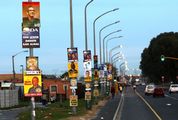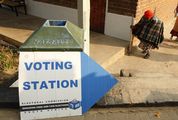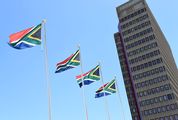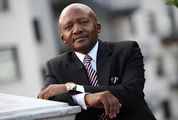BY THIS time next week, the citizens of the UK will have voted on Britain’s exit from the EU. The serious risks Brexit poses to SA have caught our policy makers unawares. Three factors lie behind this lack of preparedness.
First, a decision to leave has been regarded as too perverse to be credible. The UK, after all, has benefited handsomely from EU membership. Before it joined in 1973, growth lagged behind major European and North American economies. In the decades since, the UK has grown faster than any other Group of Seven country.
Britain opted out of the single currency and the Schengen agreement to create a single external border. It nonetheless secured its primary goal of completing a "single market", which has removed barriers to trade and capital flows and introduced powerful competition policies.
Britain was a champion of enlargement to 27 countries, a historic achievement that helped secure stability in post-Soviet Central and eastern Europe.
The potential costs of departure to the UK are huge. The Treasury predicts a GDP loss of 3.6% after two years, and 500,000 additional unemployed; a worst-case scenario predicts 820,000 extra unemployed. Britons, however, are not in the mood to listen: as one pro-Brexit politician observed, "people in this country have had enough of experts".
A second reason for our unpreparedness is an element of fantasy in SA’s foreign policy establishment. Such thinking centres on the gap between SA’s actual trade and investment relations and the partners the ANC wishes we had.
Admission to Brics (Brazil, Russia, India, China and SA) has brought SA closer to two new authoritarian friends. Russia is a big deal to President Jacob Zuma — personally, at least. China is a bigger deal for the country, both negatively — by displacing domestic production in labour-absorbing manufacturing — and positively, by providing potential new markets for the future.
While officials often remark that China is already SA’s "single largest" trading partner, accounting for about 12% of exports in 2014, these exports are mostly resources; Chinese imports are mostly manufactured products.
The EU, by contrast, is a far more important and benign partner, accounting for more than a fifth of all trade, and for almost all of SA’s high value-added manufactured exports. North America, the eurozone and the UK remain the most vital sources of foreign direct investment.
Finally, SA’s foreign policy establishment lacks the analytical capacity to plan effectively for Brexit. This is not because Foreign Minister Maite Nkoana-Mashabane has a "hole in the head", as she has apparently herself reported in recent weeks. Rather, in a world already beset by uncertainty, the EU poses unique intellectual challenges to diplomats and financial market analysts everywhere.
After Brexit, UK parties will become frogs in a fast-spinning political food processor. The Conservatives may well split; Scottish nationalists will demand a new referendum on independence; and the Northern Ireland can of worms will be reopened and poured into the mix.
Political movements elsewhere in the EU — in Spain, Belgium and Italy — are likely to intensify their own separatist campaigns. Nationalists in central Europe are already itching to roll back the unwelcome EU values of democracy, tolerance and human rights.
The costs of Brexit could be high for UK citizens, especially if EU states play hardball to deter copycats. But the biggest damage could be to a wider EU project that has averted German hegemony, contained European nationalism, and promoted stability across the world’s historically most conflict-ridden continent. The economic fallout from such a disaster, should it occur, would very quickly reach SA’s shores.
• Butler teaches public policy at the University of Cape Town
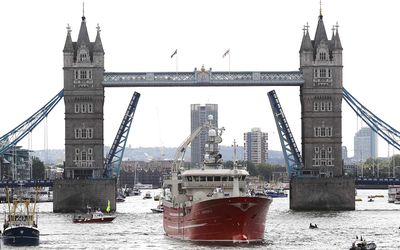
A flotilla of fishing vessels campaigning to leave the European Union occupy on the river Thames in London, the UK, on Wednesday. Picture: REUTERS/STEFAN WERMUTH
BY THIS time next week, the citizens of the UK will have voted on Britain’s exit from the EU. The serious risks Brexit poses to SA have caught our policy makers unawares. Three factors lie behind this lack of preparedness.
First, a decision to leave has been regarded as too perverse to be credible. The UK, after all, has benefited handsomely from EU membership. Before it joined in 1973, growth lagged behind major European and North American economies. In the decades since, the UK has grown faster than any other Group of Seven country.
Britain opted out of the single currency and the Schengen agreement to create a single external border. It nonetheless secured its primary goal of completing a "single market", which has removed barriers to trade and capital flows and introduced powerful competition policies.
Britain was a champion of enlargement to 27 countries, a historic achievement that helped secure stability in post-Soviet Central and eastern Europe.
The potential costs of departure to the UK are huge. The Treasury predicts a GDP loss of 3.6% after two years, and 500,000 additional unemployed; a worst-case scenario predicts 820,000 extra unemployed. Britons, however, are not in the mood to listen: as one pro-Brexit politician observed, "people in this country have had enough of experts".
A second reason for our unpreparedness is an element of fantasy in SA’s foreign policy establishment. Such thinking centres on the gap between SA’s actual trade and investment relations and the partners the ANC wishes we had.
Admission to Brics (Brazil, Russia, India, China and SA) has brought SA closer to two new authoritarian friends. Russia is a big deal to President Jacob Zuma — personally, at least. China is a bigger deal for the country, both negatively — by displacing domestic production in labour-absorbing manufacturing — and positively, by providing potential new markets for the future.
While officials often remark that China is already SA’s "single largest" trading partner, accounting for about 12% of exports in 2014, these exports are mostly resources; Chinese imports are mostly manufactured products.
The EU, by contrast, is a far more important and benign partner, accounting for more than a fifth of all trade, and for almost all of SA’s high value-added manufactured exports. North America, the eurozone and the UK remain the most vital sources of foreign direct investment.
Finally, SA’s foreign policy establishment lacks the analytical capacity to plan effectively for Brexit. This is not because Foreign Minister Maite Nkoana-Mashabane has a "hole in the head", as she has apparently herself reported in recent weeks. Rather, in a world already beset by uncertainty, the EU poses unique intellectual challenges to diplomats and financial market analysts everywhere.
After Brexit, UK parties will become frogs in a fast-spinning political food processor. The Conservatives may well split; Scottish nationalists will demand a new referendum on independence; and the Northern Ireland can of worms will be reopened and poured into the mix.
Political movements elsewhere in the EU — in Spain, Belgium and Italy — are likely to intensify their own separatist campaigns. Nationalists in central Europe are already itching to roll back the unwelcome EU values of democracy, tolerance and human rights.
The costs of Brexit could be high for UK citizens, especially if EU states play hardball to deter copycats. But the biggest damage could be to a wider EU project that has averted German hegemony, contained European nationalism, and promoted stability across the world’s historically most conflict-ridden continent. The economic fallout from such a disaster, should it occur, would very quickly reach SA’s shores.
• Butler teaches public policy at the University of Cape Town


